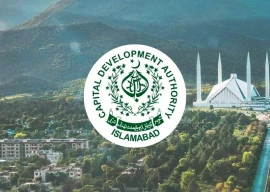
Both Pakistan and India must make constant efforts to mitigate any potential crisis through a process of constant engagement on nuclear issues. This suggestion was made by Pakistani delegates upon their return from the recently held “The 13th Chaopharaya Dialogue”- India Pakistan Track-II diplomacy initiative in Bangkok, Thailand.
The official dialogue between India and Pakistan which was stalled following the 26/11 attacks in Mumbai, witnessed some progress recently. With the upcoming elections in India, dialogue between both the countries may come to a standstill until things settle down. Addressing a group of journalists, the delegates explained that the nature of the initiative was to build an atmosphere conducive to constant dialogue between both the countries.
The 13th Chaopharaya Dialogue welcomed a delegation consisting of parliamentarians, former diplomats, officers of the armed forces, academics, media persons and policy experts from both the countries to meet in Bangkok and address what they foresee as unyielding challenges faced by both the countries today.

While recommendations to improve people-to-people initiatives, communication, encouraging lenient visa policies and appreciating trade policies were made, issues relating to Afghanistan and the Line of Control between the two countries were also on the discussion table. Most of the recommendations made by experts cantered on nuclear security concerns between the two states.
Further recommendations suggested that the state of bilateral relations in terms of nuclear stability must be reviewed. Delegates discussed that both India and Pakistan must reaffirm their commitment to global nuclear disarmament as well as the Nuclear Security Summit Process. Bilateral discussions that address the flight testing of cruise missiles must be a part of the existing pre-notification regime. Moreover, strengthening of secure communication for nuclear-risk reduction must be looked into. They also encouraged interaction and cooperation of institutions dealing with nuclear emergency in India and Pakistan.
A part of the delegation, former high commissioner to India, Aziz Ahmad Khan said that although the commerce ministry’s meeting was not formal talk, the initiative is welcomed. Khan said that Pakistan and India must be on the same page in addressing serious issues which reap benefits for the region as a whole. “Both sides’ dialogue process must carry on uninterrupted. The sooner we realize this, the better,” said Khan.
At present, Pakistan and India share the kind of comfort zone which they have not in the past. He said that the dialogue process has been limping since the Mumbai attacks. The only way to overcome such situations is to intensify the dialogue.
Speaking about the 2014 ISAF drawdown, experts recommended understanding an Afghan-owned and Afghan-led reconciliation process as key to preventing civil strife, where all parties must support the reconciliation process and work for its success.
Lieutenant General Talat Masood was of the view that Pakistan wants a stable Afghanistan and a non-volatile border. He underscored the massive threat to Pakistan if the Taliban assumes power in Afghanistan.
Author and delegate Zahid Hussain said that the political setup in Afghanistan will have a drastic effect on the region. “If a civil war breaks out in Afghanistan, Pakistan will be directly affected,” he added.
The initiative was jointly undertaken by the Jinnah Institute and Australian India Institute to encourage informed discussion on bilateral relations and raise national stakes in the peace process.
Published in The Express Tribune, February 7th, 2014.
COMMENTS (3)
Comments are moderated and generally will be posted if they are on-topic and not abusive.
For more information, please see our Comments FAQ










1724018265-1/City-Traffic-Police-(CTP)1724018265-1-270x192.webp)












With the introduction of nuclear weapons in South Asia, the region has become a central focus of attention for the world. Every wants stability, peace and harmony in the region. No one wants a war but we cannot change the history pages. The arch rivalry between two countries got a certain limit with the nuclear weapons from a full scale war although conflicts are present. There are multiple efforts of mitigating the rivalry but all efforts met with failure. But hopes are still high because war is not in the interest of any one especially in the presence of nuclear weapons. Threats and challenges must be addressed in order to achieve the durable peace.
Nuclear confidence-building measures have to be viewed as a stabilising force for enhanced security, and safety of nuclear facilities. On balance, the civilian government in Islamabad has acquitted itself extremely well. If these talks signify a resolve not to let the problem of "core issues" preclude New Delhi and Islamabad from proceeding with achievable outcomes on other diplomatic tracks, then surely history will show that this February meeting may the turning point in the Subcontinent’s geopolitics.
Pakistan and India are the two potential rivals in the South Asia region. Rivalry between them is historical an cannot be get resolved over the night. For that purpose negotiations and CBMs must be introduced in consent with both countries because the regional security and strategic balance of the region is highly dependent on the attitude of these two states. As long as the nuclear issues are concerned then its a fact that India was the state who introduced nuclear weapons in the region, its testing devices further raised security concerns for Pakistan, and in response Pakistan has to followed the suit for balancing the equation. Pakistan is conventionally inferior to India and its nuclear weapons have given it a strategic deterrence against India. Pakistan has a control over its nerves and would not use nuclear weapons in minor conflicts, until there is a severe attack or aggression from its neighbor. Nuclear disarmament is an ideal concept which cannot be realistic in today's world. Pakistan is a regular participant of Nuclear security summits and is improving its nuclear safety and security mechanism in order to run its nuclear program in accordance with the international norms and standards of safety and security.